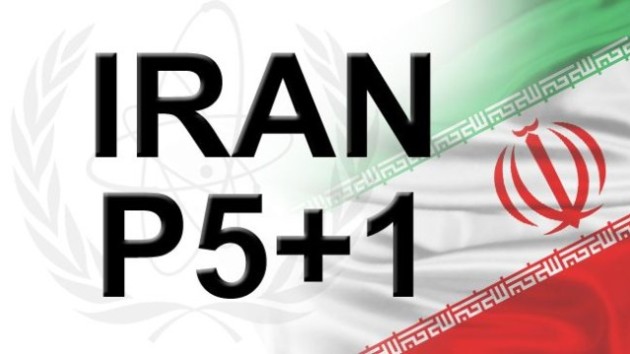Iran: P5+1 Reach Deal on Six Month Freeze
In separate announcements, Iran and the P5+1 reached agreement on the implementation of the Joint Plan of Action (JPA) to begin on January 20, 2014. The original announcement of the interim agreement between the P5+1 and the Islamic regime in Tehran had been made on November 24, 2013. Friday reports came that the JPA agreement was imminent.
AP, IRNA, and Deutsche Welle had reports on these developments with statements by Iranian Deputy Foreign Minister Abbas Araqchi, EU Foreign Relations Commissioner Catherine Ashton, President Obama and Secretary of State Kerry.
Iran’s Araqchi announced, “The Joint Plan of Action reached between Iran and P5+1 in Geneva on November 24 will be implemented as of January 20.”However, he noted that uranium enrichment will continue at the 20% level until January 19th and that Iran fully expects the P5+1 to comply with agreed terms on the 20th. Ashton, said, “The foundations for a coherent, robust and smooth implementation…have been laid. She further noted,” We will ask the International Atomic Energy Agency (IAEA) to undertake the necessary nuclear-related monitoring and verification activities.” Secretary of State Kerry commented that the agreement “represents the best chance we have to resolve this critical national security issue peacefully, and durably.” The White House verified the announcement saying, “Beginning January 20th, Iran will for the first time start eliminating its stockpile of higher levels of enriched uranium and dismantling some of the infrastructure that makes such enrichment possible.” President Obama warned that the P5+1 would “move to increase [their] sanctions” if Iran didn’t comply with the terms. However, he said the deal “will advance our goal of preventing Iran from obtaining a nuclear weapon. I have no illusions about how hard it will be to achieve this objective, but for the sake of our national security and the peace and security of the world, now is the time to give diplomacy a chance to succeed.”
During the run up to today’s announcement differences between the Administration and Congress arose over pending new Iran sanctions legislation, the Nuclear Weapons Free Iran Act (NWFIA) that the White House threatened to veto. At one point during negotiations, the Iranian delegation headed by Foreign Minister Mohammad Javad Zarif threatened to leave the Geneva meetings over the new US Sanctions initiative. In late December 2013, 230 members of Iran’s Parliament, the Majlis, signed legislation threatening to authorize uranium enrichment to 60% levels to counter the proposed NWFIA.
Among the terms agreed to was authority for the IAEA to conduct daily inspections of known Iranian nuclear facilities and supervise the neutralization of existing stock of enriched uranium at the 20% level, while Iran was granted permission to enrich to a 5% cap. However, a report from IRNA indicated that the Atomic Energy Organization of Iran had not received requests from the IAEA to open up a dedicated Tehran office, noting only that the UN agency had made frequent trips from its Vienna headquarters to conduct periodic inspections. That raises questions about the ability to enforce the provisions of the JPA.
The AP reported Iran’s Araqchi saying on national television that the Islamic Regime expects to receive release of $4 billion in frozen oil revenues versus upwards of $7 billion in relief the US had originally estimated with this interim pact. Separately, Washington, DC-based Foundation for Defense of Democracies had estimated upwards of $20 Billion from the easing of sanctions. We have noted in Iconoclast posts recent visits by British parliamentary and French trade delegations. Further Turkey has confirmed an upcoming visit by embattled Turkish premier Erdogan to Tehran in late January or early February. Erdogan is seeking to expand bilateral trade with Iran. According to experts cited in a Christian Science Monitor report Iran’s economy may have shrunk by an estimated 3% in 2012 and 2% in 2013.
Today’s announcement comes just prior to President Obama’s annual State of the Union address to a joint session of Congress on January 28th. Further, it comes as momentum is building in the US Senate on a possible veto-proof bipartisan majority for passage of NWFIA. It also comes prior to the scheduled January 22nd Geneva II talks on ending the 34 month long civil war in Syria. Secretary Kerry raised the prospect of inviting Iran to attend those sessions a week ago saying that the Islamic regime “might have a role to play on the sidelines.”
EDITORS NOTE: This column originally appeared on The New English Review.


